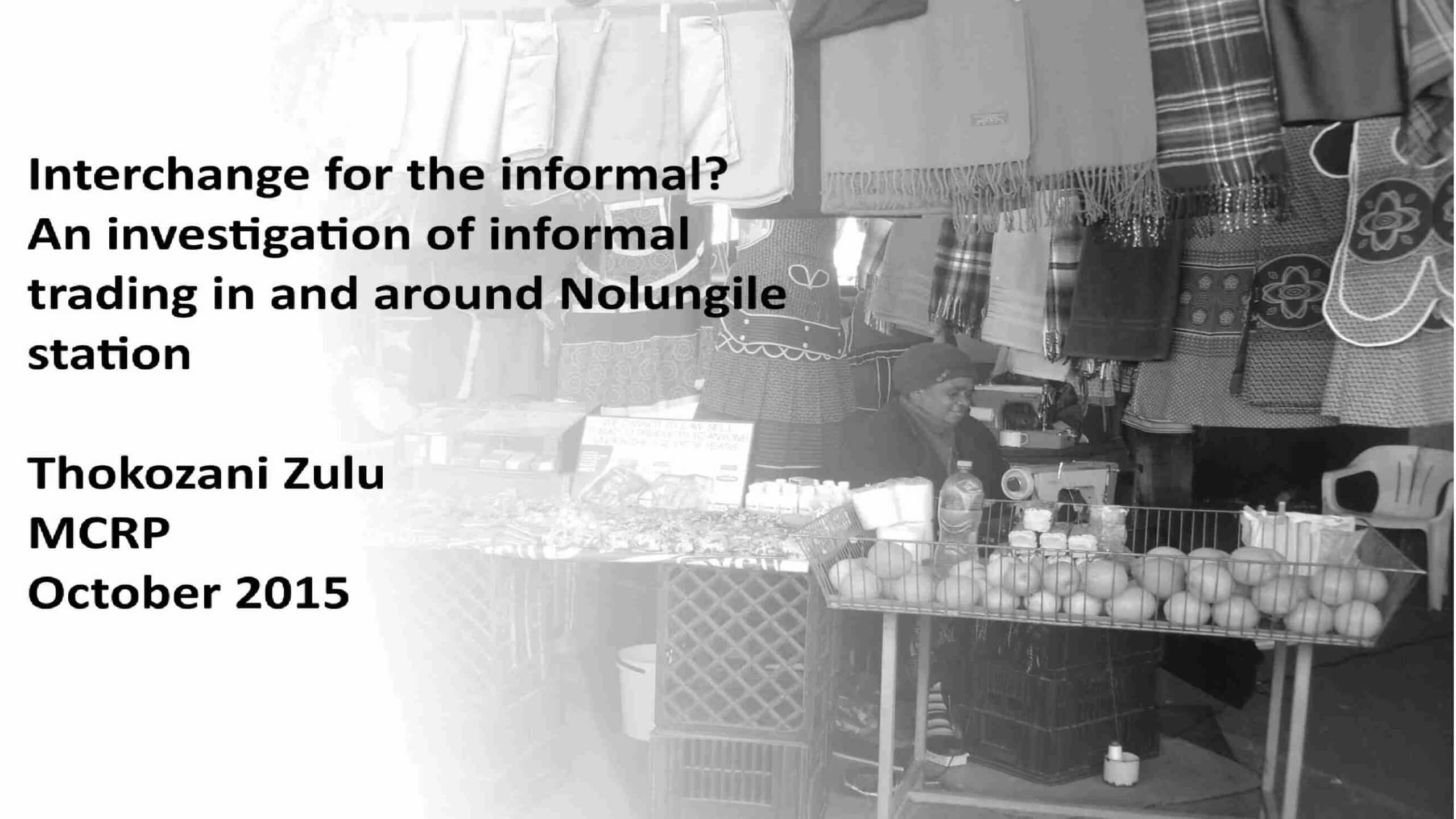“Interchange for the informal market? An investigation of informal trading in and around Nolungile station, Khayelitsha, Cape Town” – presentation
This is a student presentation of a masters dissertation. The main objective of this research was to examine the factors and processes that obstruct traders in securing their livelihoods in township economies but also to assess the potential impact on traders of the planned upgrades.
View list of all: Presentations

